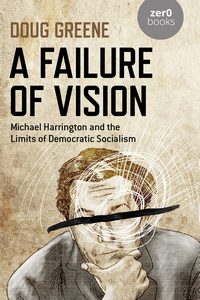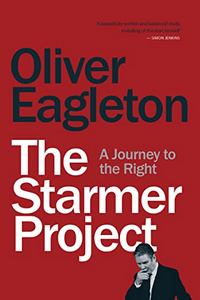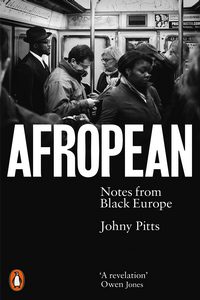Book reviews – Harrington / Starmer / Afropean + Soft Cell review
 Reformist
Reformist
A Failure of Vision: Michael Harrington and the Limits of Democratic Socialism. By Doug Greene, Zero Books, 2021. £15.99
This is a political biography of Michael Harrington (1928-1989) who was the best known ‘socialist’ in the US after the death in 1968 of Norman Thomas, the perennial presidential candidate of the Socialist Party of America. Harrington was first associated with the Catholic Worker Movement but then became a ‘Shachtmanite’, an offshoot from Trotskyism based on the ideas of Max Shachtman whose difference with Trotsky was over ‘The Nature of the USSR’. Trotsky maintained that it was basically a ‘workers’ state’. Shachtman could see that this was an untenable position and argued that Russia was best described as ‘bureaucratic collectivism’, a new class society ruled by a new ruling class exploiting the workers. To begin with, he had held that Russia was more progressive than capitalism, but later that it was the other way round and he became a staunch ‘anti-communist’.
Taking this position, in 1958 Shachtman, Harrington and the others joined the Socialist Party of America. This was the nearest equivalent in the US of the Labour Party in Britain and held the same ideas as, at the time, that party did (except that it paid more lip-service to Marx’s ideas, in fact to ideas in general) – that the state capitalism that it called ‘socialism’ would come about gradually as the outcome of a series of nationalisations and social reforms introduced democratically; basically, reformists who wanted to humanise capitalism.
Not getting anywhere as a separate party, in 1973 Harrington and the others (Shachtman had died in 1972) decided to enter the Democratic Party and work to get it to adopt and enact progressive policies. Their political descendants today are the ‘Democratic Socialists of America’ which has recruited tens of thousands of members and succeeded in getting some of its members elected (as Democrats) to the House of Representatives, the most well-known of whom is Alexandra Ocasio-Cortez.
Greene argues that, despite this posthumous relative success, Harrington’s entry into the Democratic Party with a view to ‘realigning’ it was a mistaken strategy; as the Democrats were a capitalist party beholden to capitalist interests, it led to Harrington and his group becoming its tail-end, working to ensure the election of Democratic Presidents and other officials to run the political side of American capitalism. On this point Greene is right. He also argues, again correctly, that capitalism cannot be gradually reformed so as to work in the interest of the working class.
However, he writes as a member of one of the 57 varieties of Trotskyism (a group called ‘Left Voice’). To be fair, he has confined his alternative strategy to get to state capitalism to an appendix in which he criticises Harrington’s ‘Democratic Marxism.’ This was a wise move on his (or his editor’s) part as his ‘vision’ of an insurrection and his defence of the idea that even under Stalin Russia was some sort of ‘workers’ state’ would have led to his criticism of Harrington’s gradualist reformism being taken less seriously.
 Careerist and reformist
Careerist and reformist
The Starmer Project. By Oliver Eagleton. Verso. 2022. £12.99
Just as we’ve become used over the years to all those tedious historiographies of the Bolshevik Revolution and Soviet Union that claimed it would have been alright if wasn’t for a particular bunch of malcontents and traitors who somehow ruined it all, so today we have the Corbynistas. And in particular, here we have Oliver Eagleton (son of Terry) to tell us that Sir Keir Starmer is the new political antichrist and that he is never to be forgiven for undermining The Messiah, aka Saint Jeremy Corbyn. Furthermore, in this craven mission the swine apparently enlisted John McDonnell and a whole list of other Judas-like characters.
There is some useful research and journalism in this book (Eagleton writes for The Guardian periodically). But it is all filtered through such a thick distorting prism that you are left almost feeling sorry for Starmer, political careerist and reformist though he is.
There are four chapters that logically flow one after the other to mirror Starmer’s career: The Lawyer, The Politician, The Candidate and The Leader. Because it suits his purposes, Eagleton rather downplays Starmer’s early time in the 1980s in and around a Pabloite Trotskyist sect, though his time as Director of Public Prosecutions sees him seemingly held personally responsible for almost literally every legal decision at the time that Eagleton dislikes. You strongly suspect the truth lies somewhere in between that narrative and the one of the pious, upright human-rights lawyer that Starmer still likes to project.
But either way, this misses the point – as does much of the book. Eagleton lists the key features of what he calls ‘The Starmer Project’ thus:
‘1) a ‘values-led non-antagonistic election strategy; 2) an unsparing crackdown on the Labour Left, seen as more dangerous than the Conservatives; 3) an Atlanticist authoritarian disposition, combining intervention abroad with repression at home; and 4) a return to neoliberal economic precepts, overseen by Blairite leftovers’ (p.186).
But using this same categorisation, what was the leftist Corbyn project this replaced and was – in part – a reaction against? Arguably:
1) a ‘values-led’ but utopian and incoherent election strategy, doomed to predictable defeat and recrimination; 2) an unsparing crackdown on those elements in the Labour Party who knew how to win elections (ie, by telling the working class what it wants to hear); 3) a quasi-Leninist disposition, combining active or tacit support for repression abroad with intervention at home; and 4) a return to state capitalist economic precepts, overseen by Trotskyist and Stalinist leftovers.
Eagleton – like Corbyn and many on the Labour Left – has a yearning against injustice that is commendable. However, he misunderstands the party he supports. The Labour Party exists to win elections (without power it is nothing) and to then enact mild reforms that can ameliorate the worst excesses of capitalist society – or at least try to. Starmer stands foursquare in this tradition; the Corbyn mirage was that you could somehow more radically transform capitalism with its profit motive and market economy through leftist sloganeering combined with a Biblical proportions wish-list of largely unrealistic promises. This is not something that has ever worked – anywhere, in any country.
Some of what Eagleton says about Starmer hits home, but it is so skewed and partial at times it is not entirely reliable. Indeed, the abiding impression is that the book rather deceives by selection, and is significantly the worse for it.
DAP
 Not Just Festivals
Not Just Festivals
Afropean: Notes from Black Europe. By Johny Pitts. Penguin £10.99.
Pitts was born in Sheffield, to a white mother and black father, but he is not keen on the term ‘mixed race’, on the grounds that everyone is a mixture and there are no ‘pure’ races. Here he reports on a tour around some of Europe’s cities, Stockholm to Marseilles, Moscow to Lisbon, in search of ‘the banal humanity of everyday life’, rather than just street festivals and carnivals. Among other topics, he also discusses the history of Portuguese colonialism and the life and ideas of Frantz Fanon (for more information and background, see afropean.com and johnypitts.com).
In France many poor people, especially immigrants, have been shunted out to the suburbs, away from city centres. Pitts visited Clichy-sous-Bois, an area of Paris not served by trains or the Métro, and which is far worse than any deprived estate in Britain. For instance, the unemployment rate there is almost one-third, much higher than the national average. Some people live in dilapidated tower blocks where many of the windows have no glass in them. Second-generation black immigrants are angry as they are treated as foreigners, despite being taught to believe they are French.
The largest ethnic community in the Netherlands is Surinamese, the descendants of people brought by Dutch slave ships from West Africa to the north coast of South America. Many live on the Bijlmer estate near Amsterdam, where they squatted because few others wanted to live there. When black people complain about Dutch racism, some of the rest of society feel victimised, since the Netherlands is of course not a racist country.
Berliners pride themselves on living in a ‘super-open society’. But carnivals seemed to be more about young people having fun, while genuine resistance by black people had a more dangerous hue to it. The city does have an Afropean area, with lots of different kinds of restaurants and music.
There are many African and Asian students in Russia, carrying on a tradition from the USSR. But in Moscow they may be spat at or attacked, are reluctant to be seen out with white friends, and prefer to stay in at night. (As a girlfriend later reminds Pitts, solo female travellers generally also have to be careful where they go and to look out for unwanted attention.)
The worst behaviour that he encountered was from British men, such as stag-dos in Amsterdam and drunken football supporters on a train in the south of France (he was addressed as ‘Mr Afro-man’). His book provides a personal and depressing picture of the lives of so many black workers in Europe.
PB
 Album review – Tainted Lives
Album review – Tainted Lives
Happiness Not Included by Soft Cell (BMG, 2022)
Soft Cell began their career when punk’s angry energy was being channelled into then-new musical styles, such as the synth-based sound which has accompanied their songs of suburban angst. Since the band’s peak of popularity in the early ’80s, Marc Almond and Dave Ball have reunited for an album every couple of decades, now with Happiness Not Included. As its title suggests, their slant on society and its mood is even more jaded than before, although not without optimism.
The appeal of looking backwards is the subject of songs Polaroid, Nostalgia Machine and opener Happy Happy Happy about sci-fi’s off-kilter past dreams of the future (‘a better life with little strife, and very little meaning’). The album’s title track is a call to snap out of other stagnant ways of thinking (‘Every opinion is seen as offensive. That’s why we’re always on the defensive’, ‘Times have moved and shifting sands. The future’s in another lunatic’s hands’), and is more directly political than the other songs.
The theme of living in an alienating world is found throughout Soft Cell’s work, especially Happiness Not Included. Being hardened or numbed by life runs through tracks such as Heart Like Chernobyl, I’m Not A Friend Of God and, most effectively, Tranquiliser, one of the band’s kitchen sink dramas. This treads similar ground to 1981’s Bedsitter, although the escape from a lonely, hollow existence isn’t in a nightlife to ‘kid myself I’m having fun’ as in the earlier song, but now with taking downers so ‘I feel nothing at all’. Other tracks are more positive about finding a way out of a rut, such as Bruises On All My Illusions, Purple Zone (a collaboration with the Pet Shop Boys) and closing track New Eden. The album also avoids being too depressing by its lyrics not always taking themselves seriously (‘I feel like North Korea in the winter’, ‘It’s all the fault of the media and all the fear they feed ya’) and upbeat arrangements, particularly on Nostalgia Machine and Purple Zone. While Happiness Not Included isn’t a concept album, its songs hang together as a commentary on how people can react to these uneasy times. The result is probably Soft Cell’s best album since their first, and hopefully it won’t be another twenty years until their next.
MIKE FOSTER
